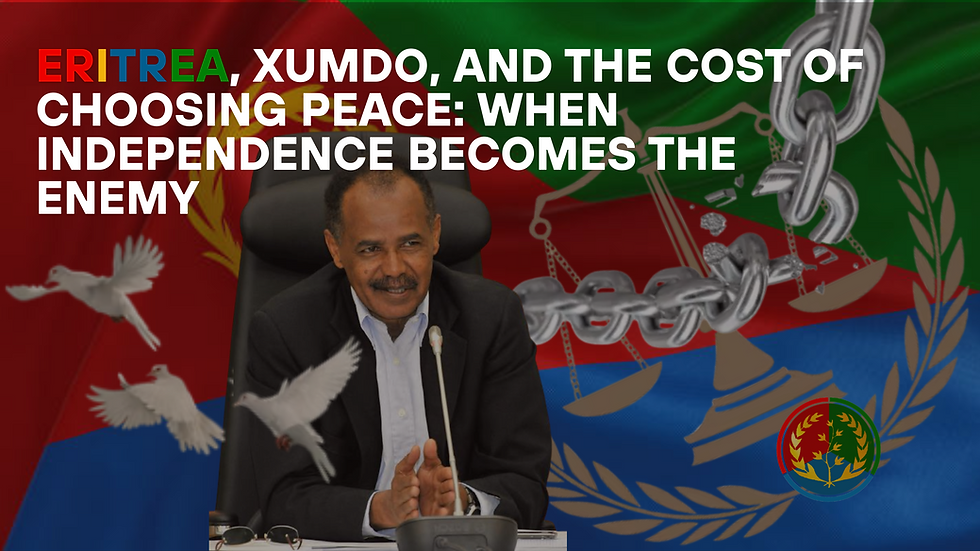How Can Sanctions Be Justified Without Evidence?
- Nakfa Eritrea
- Jan 26, 2025
- 2 min read
How Can Sanctions Be Justified Without Evidence?
1. Geopolitical Interests Over Facts:
Powerful nations, particularly the U.S. and its allies, often impose sanctions to serve strategic interests, regardless of actual wrongdoing. Eritrea’s strategic location along the Red Sea makes it a valuable geopolitical target, and its independent stance poses a challenge to Western influence in the Horn of Africa.
The sanctions fit into a broader pattern of pressuring governments that resist Western control, using accusations—whether substantiated or not—as a pretext for economic and political isolation.
2. Weaponization of International Institutions:
Institutions like the United Nations Security Council, often influenced by Western powers, can be used to pass resolutions based on politically convenient narratives rather than objective investigations.
The 2009 UN sanctions on Eritrea were largely driven by political maneuvering rather than conclusive evidence, as later reports found no concrete proof of Eritrean involvement with Al-Shabaab.
3. Selective Enforcement and Hypocrisy:
Eritrea was sanctioned for alleged support of terrorism, yet other countries with well-documented ties to extremist groups—such as Saudi Arabia and Qatar—face no such punitive actions due to their alignment with Western economic and political interests.
This selective approach underscores how sanctions are not always about maintaining global peace and security but about controlling nations that refuse to comply with Western agendas.
4. Narrative Control Through Media Propaganda:
Western media outlets, including those like Haaretz, play a key role in shaping public perception by spreading unverified reports that later serve as justification for sanctions.
Eritrea’s refusal to align with Western economic institutions, such as the IMF and World Bank, has made it a target for misinformation campaigns aimed at painting it as a pariah state.
5. Economic Pressure as a Form of Coercion:
Sanctions, even if unjustified, are used as a tool to force compliance with Western demands. By restricting trade, freezing assets, and limiting diplomatic engagement, the goal is to weaken the targeted country’s ability to function independently and push it toward policy concessions.
Eritrea’s refusal to comply with external demands has led to persistent attempts to isolate and destabilize it economically.
Eritrea’s Response and Resilience
Despite facing years of economic sanctions and diplomatic isolation, Eritrea has remained steadfast in its commitment to self-reliance and national sovereignty. The country has rejected the allegations, emphasized its role in regional peace, and advocated for African-led solutions rather than Western interventions.
The Lack of Justification
The sanctions imposed on Eritrea were built on weak foundations, highlighting the arbitrary nature of Western foreign policy tools. Without credible evidence, such actions not only harm Eritrea’s economy and reputation but also expose the hypocrisy and double standards of international diplomacy. It is crucial to challenge these narratives and demand accountability from those who manipulate global institutions for their own strategic gains.
.png)



Comments